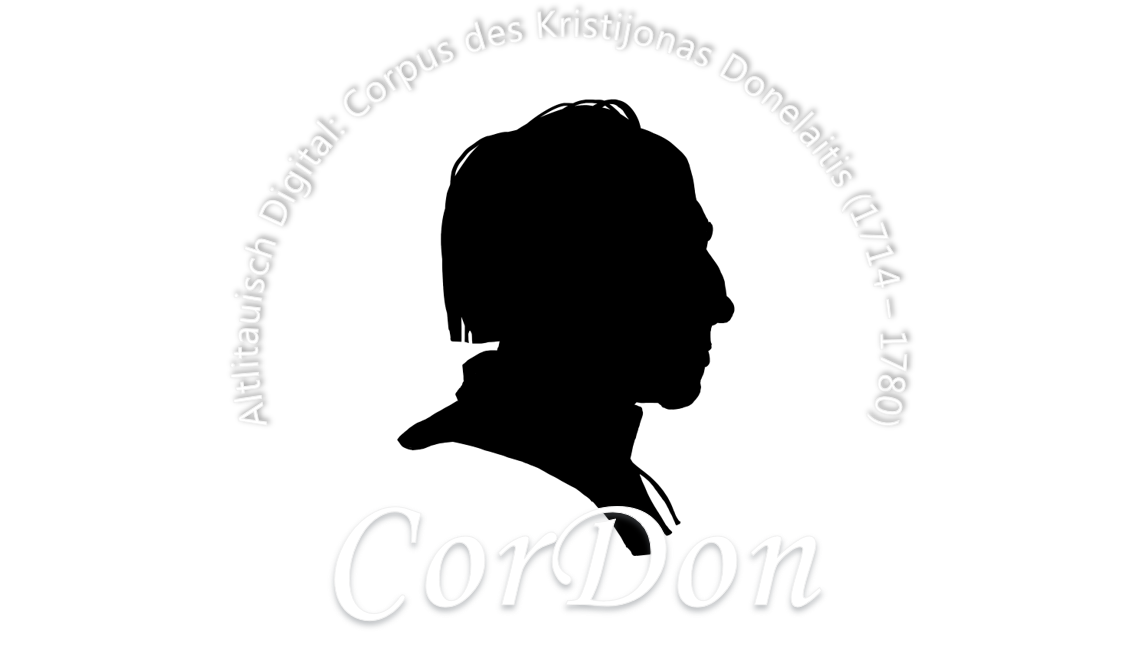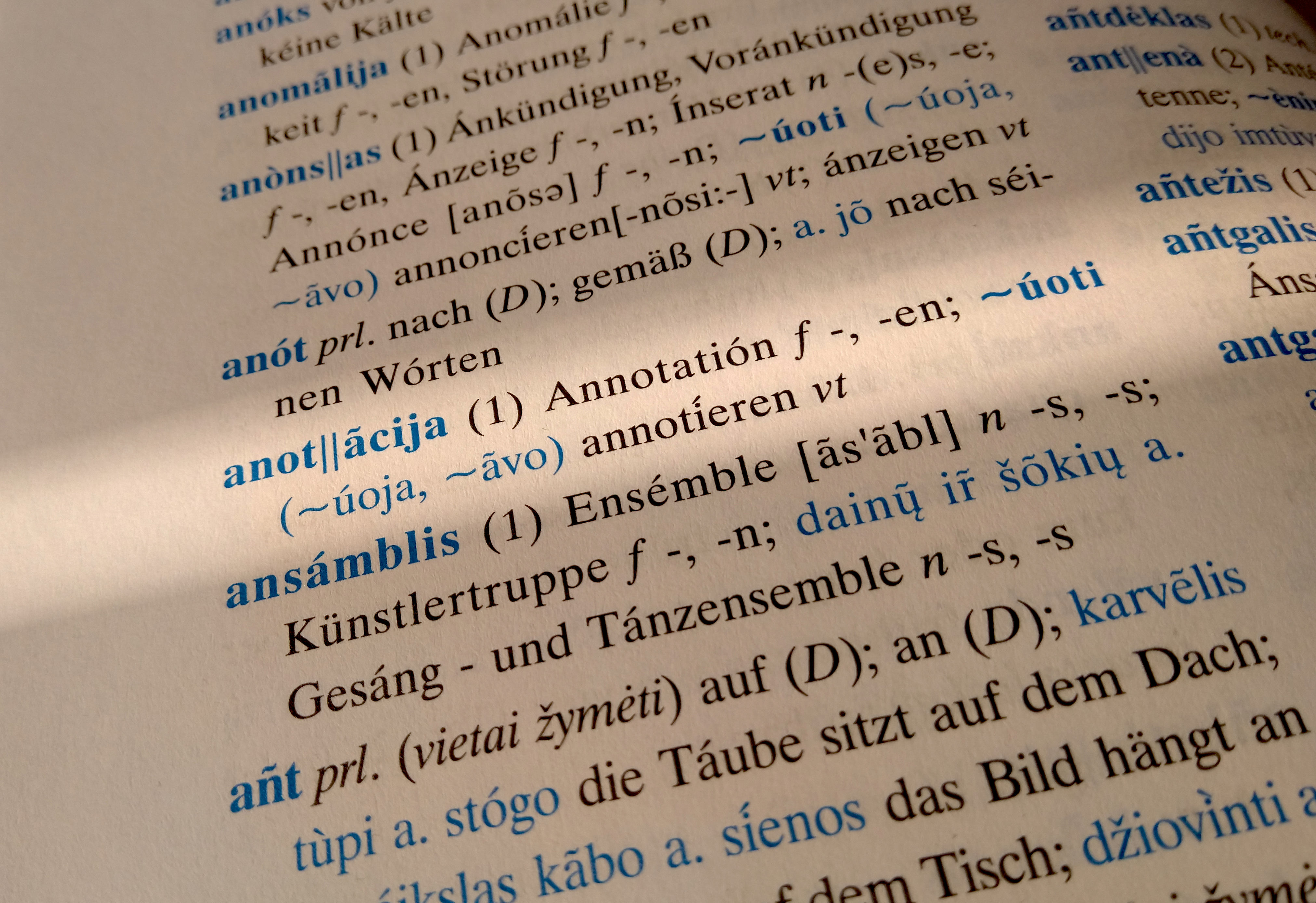
CorDon is a freely accessible, deeply annotated digital corpus (ca. 24,000 words) of the works of Lithuanian national poet Kristijonas Donelaitis: (a) the four-part poetic cycle Metai ("The Year", including the 29-line "Fortsetzung"), (b) an early part of this cycle, Pričkaus pasaka apie lietuvišką svodbą ("Fritz‘s Story about the Lithuanian Wedding") and (c) the six fables (pasakos).
The corpus is based on manuscript-accurate and print-accurate digitizations of the texts, which have been annotated lexically and morphosyntactically using a grammatical model of Old Lithuanian (CorDon tagset), itself based on the SLIEKKAS tagset. SLIEKKAS also offers comprehensive metadata as well as ELAN format versions of the texts which include textological annotations.
The annotated texts have been linked, and aligned on the verse or word level, with a facsimile of the autograph (DM PL.WD.F) as well as the print editions by Ludwig J. Rhesa (DMRh 1818, DPRh 1824), August Schleicher (DMSch 1865), and Georg H. F. Nesselmann (DMN 1869).
The sigla of all texts contained in the corpus are explained here. In addition to the annotated main text, the text of the oldest print editions and several translations can be displayed in parallel. An intuitive search interface enables complex queries.We would like to sincerely thank the Institute of Lithuanian Literature and Folklore, Vilnius, for their permission to link in this corpus the digitalization of the Donelaitis manuscript kept there.
We wish to express our gratitude to Adriano Cerri for his kind permission to use his Italian translation of the Metai and fables.
Sections of the texts in this corpus were annotated as part of the Old Lithuanian course of the Baltic Linguistics programme at Goethe University, Frankfurt. The project would like to thank the annotators:
| Philipp Büch | Aužuols gyrpelnys |
| Mortimer Drach | Pasaka apie šūdvabalį |
| Dorothea Erdmann | Rudikis jomarkininks |
| Sandra Herrmann (Marburg University), Florian Sommer (Marburg University, Zürich University) | Metai |
| Mattis Heyne | Šuo didgalvis |
| Anita Obenaus | Vilks provininks |
